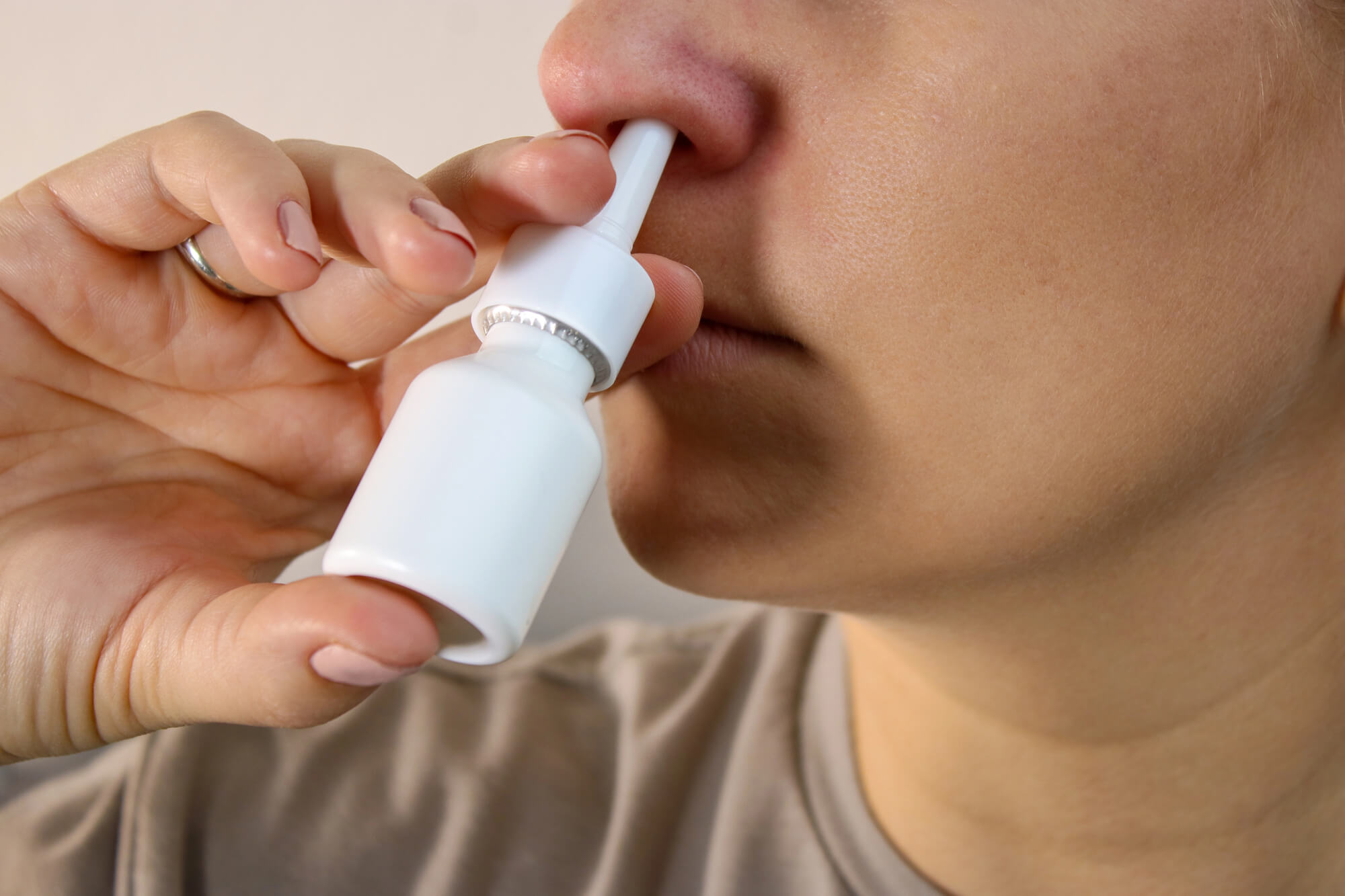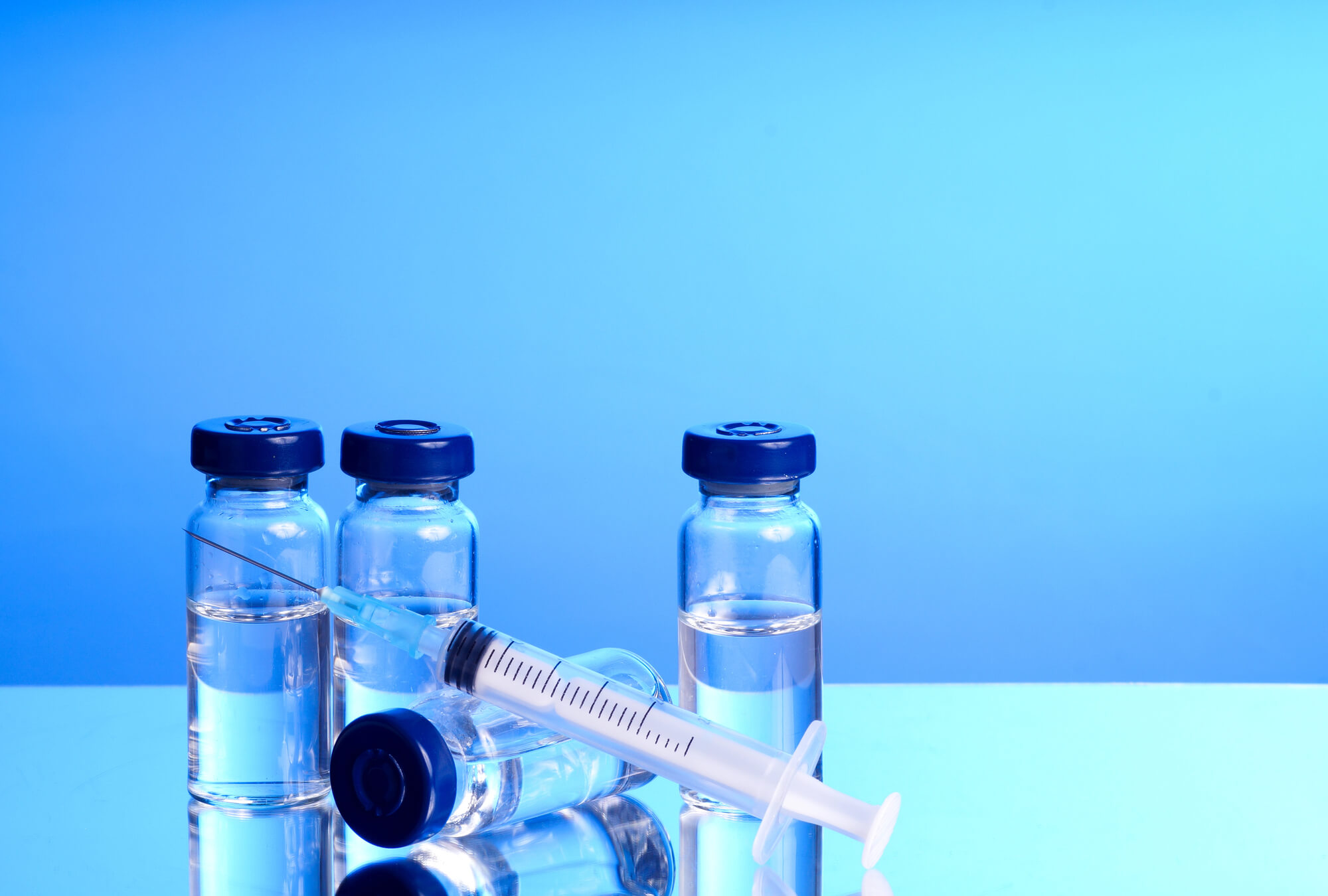Bremelanotide, also known as PT-141, is a groundbreaking medication used to treat several forms of sexual dysfunction, mainly low sexual desire in women, with an increasing awareness of its usefulness for treating erectile dysfunction (ED) in men as well.
While it is FDA-approved under the name Vyleesi® for treating Hypoactive Sexual Desire Disorder (HSDD) in premenopausal women, it is increasingly being prescribed off-label for men, especially those who do not respond to traditional PDE5 inhibitors like Viagra or Cialis.
We’ve made this comprehensive guide for you to learn how Bremelanotide for ED works, its clinical background, safety profile, and how it fits into modern, brain-based sexual health treatments.
What Is Bremelanotide (PT-141)?
Bremelanotide, also known as PT-141, is a melanocortin receptor agonist that has gained increasing attention as a novel treatment option for male erectile dysfunction (ED) and low sexual desire. Originally developed by Palatin Technologies, Bremelanotide is commercially available under the brand name Vyleesi®, which is FDA-approved for the treatment of Hypoactive Sexual Desire Disorder (HSDD) in premenopausal women.
Although Bremelanotide is officially approved for use in women with hypoactive sexual desire syndrome, its unique mechanism of action and a constant flow of new data from clinical trials have spurred off-label use in men, particularly those who don’t respond to traditional PDE5 inhibitors, which are the well-known medications like sildenafil (Viagra), tadalafil (Cialis), or vardenafil (Levitra).
Unlike PDE5i medications, which work by dilating blood vessels and improving blood flow to the penis, Bremelanotide, when injected, acts directly on the melanocortin receptor system in the brain, specifically targeting the melanocortin 4 receptor (MC4 receptor) in the hypothalamus. This makes it an on-demand treatment that addresses sexual dysfunction from the inside out: by stimulating dopaminergic pathways associated with sexual arousal, rather than simply facilitating erection through vascular dilation.
In other words, it gives a boost to sexual arousal in your mind, giving you a better sexual response to intimate moments with your partner.
Its growing appearance in investigator-sponsored Investigational New Drug applications (asking the FDA for approval) and real-world clinical trials and settings reflects a shift in how healthcare professionals, including urologists, are approaching complex, neuroendocrine-driven forms of ED and low libido.
Discovery and Development
Bremelanotide’s story actually begins with sunless tanning, as strange as that might sound.
It began with the development of Melanotan II, a compound initially studied for its ability to darken skin by mimicking alpha-melanocyte-stimulating hormone (α-MSH). During early trials, researchers noted a curious side effect: subjects reported spontaneous erections and increased sexual thoughts.
This led scientists at Palatin Technologies to isolate the compound responsible for these effects from Melanotan II, eventually naming it PT-141. From there, the company launched multiple clinical trials, including Phase 2 studies and Randomized Phase 3 Trials, to test its effectiveness in both women and men.
After years of research and evaluation by the FDA, Vyleesi® was approved in 2019 for the treatment of HSDD in premenopausal women—making it the first melanocortin receptor agonist approved for any form of sexual dysfunction.
Although not yet officially approved for men, its use in treating erectile dysfunction, especially cases unresponsive to PDE5 inhibitors, has been increasingly documented in clinical settings and Phase 2 studies.
FDA Approval and Current Uses
Palatin Technologies managed to get Vyleesi FDA-approved for women diagnosed with Hypoactive Sexual Desire Disorder, a form of sexual dysfunction characterized by low sexual desire and a persistent lack of interest in sexual activity.
Key details include:
- Approval status: FDA-approved for on-demand treatment of HSDD in premenopausal women
- Manufacturer: Palatin Technologies
- Delivery method: Subcutaneous injection via autoinjector pen
- Timing: Typically administered 45 minutes prior to anticipated sexual activity
For men, while not yet approved, Bremelanotide is prescribed off-label by healthcare professionals as part of comprehensive treatment regimens for male erectile dysfunction, particularly when driven by neuropsychological or hormonal causes rather than vascular insufficiency.
Its central action makes it ideal for individuals whose ED is not purely physical, enabling sexual desire even in the absence of external stimuli.
How Bremelanotide Works: The Brain-Based Science
Unlike traditional erectile dysfunction medications that focus on increasing blood flow through vasodilation, Bremelanotide works through an entirely different pathway: targeting the brain instead of the body. Classified as a melanocortin receptor agonist, Bremelanotide activates the MC4 receptor, a key part of the melanocortin receptor system involved in regulating sexual arousal and desire.
This central mechanism makes subcutaneous Bremelanotide unique among sexual dysfunction treatments, and especially valuable for individuals whose male erectile dysfunction is rooted in neurological, hormonal, or psychological causes.
Mechanism of Action: Melanocortin Receptor Activation
Bremelanotide (PT-141) mimics the effects of alpha-MSH, stimulating melanocortin receptors located in the hypothalamus, a region of the brain critical for controlling sexual behavior. The key target, the MC4 receptor, is involved in the dopamine pathways that regulate sexual arousal, desire, and mood.
Since it is injected, it bypasses the vascular system entirely and instead triggers activity in the central nervous system. This neurochemical activation increases dopamine release, heightening libido and enhancing both emotional and physical readiness for sexual activity.
Why It’s Different From PDE5 Inhibitors
Most conventional ED drugs, such as sildenafil (Viagra), are part of a class known as phosphodiesterase-5 inhibitors (PDE5i). These medications work by dilating blood vessels in the corpus cavernosum of the penis, improving blood pressure dynamics and enabling erections, but only when sexual stimulation is already present.
Bremelanotide, by contrast, works centrally. It doesn’t just improve the physical response; it initiates the desire to engage in sexual activity. That’s why it’s especially useful for:
- Men who don’t respond to PDE5 inhibitors
- Men with low sexual desire or emotional disconnection
- Those with psychogenic or neurogenic ED
- Patients with cardiovascular risks or diabetes who can’t tolerate vasodilators
Evidence from Clinical Trials
Multiple phase 2 clinical studies and randomized phase 3 studies have evaluated Bremelanotide’s impact on sexual desire scores, arousal, and overall patient satisfaction. In trials involving both women with HSDD and men with ED, Bremelanotide consistently improved outcomes in populations previously classified as “treatment-resistant.”
Tools like the International Index of Erectile Function (IIEF) showed significant gains in erectile performance, particularly in domains related to arousal, initiation, and satisfaction.
PT-141 also passed a key test, which was used in a small clinical trial, and up to 70% of men in the trial saw a noticeable improvement in their sexual function when answering through the Patient Global Impression of Improvement 0(PGI-I) scale.
All these phase 2 and phase 3 studies have highlighted Bremelanotide as a reliable on-demand treatment that works within 45–60 minutes and provides neurological enhancement of sexual readiness, something that PDE5 inhibitors cannot offer on their own.
Clinical Benefits of Bremelanotide for ED and Beyond
Bremelanotide stands apart from traditional erectile dysfunction treatments by targeting the root of sexual desire, neurological signaling in the brain, rather than just the mechanics of blood flow. That is why its unique mode of action has made it a viable option not only for men but also for women.
The result is a therapy that supports both physiological and emotional dimensions of sexual wellness.
For Men with Erectile Dysfunction
Bremelanotide is particularly effective for men experiencing male erectile dysfunction that doesn’t respond well to phosphodiesterase-5 inhibitors (PDE5i) like sildenafil, tadalafil, or vardenafil.
Because it works via MC4 receptor stimulation in the hypothalamus, Bremelanotide helps jumpstart the desire and arousal phase, enhancing not only erection quality but also overall sexual function, including the motivation to engage in sexual activity.
For Women with Low Sexual Desire
The FDA-approved form of Bremelanotide, marketed as Vyleesi, is indicated for the treatment of Hypoactive Sexual Desire Disorder in premenopausal women. In randomized phase 3 trials, Vyleesi demonstrated significant improvements in sexual desire scores and increased the frequency of satisfying sexual events among participants with HSDD.
Its role in treating hypoactive sexual desire syndrome makes it one of the few therapies with clinical validation for addressing both male and female sexual dysfunction, reinforcing its versatility across genders.
Emotional and Cognitive Benefits
Unlike medications that only support physical readiness, Bremelanotide also addresses psychological components of sexual dysfunction. Patients frequently report:
- Enhanced libido and spontaneous sexual thoughts
- Reduction in performance anxiety
- Greater emotional connection during intimacy
- Improved sexual response to partners
- Improved sexual satisfaction and confidence
These benefits are driven by the drug’s ability to activate dopaminergic pathways, systems directly involved in sexual motivation and pleasure response.
Ideal for Combination Therapy
Bremelanotide’s brain-first mechanism makes it a powerful partner in combination regimens. Many providers, including those at Boston Medical Group, use PT-141 alongside oral therapies like Erexafil, a compounded formulation that includes sildenafil, tadalafil, apomorphine, and B12. Patients often experience faster onset, stronger response, and more complete restoration of sexual function with this combination therapy. This dual-action model is especially effective for men with complex, multifactorial ED.

Bremelanotide Administration Options
Bremelanotide is most commonly administered as a subcutaneous injection, although there have been attempts to make a successful intranasal version. The delivery method plays a significant role in the drug’s efficacy, absorption rate, and predictability of response.
Subcutaneous Injections (FDA-Approved Route)
The FDA-approved formulation of Bremelanotide, sold under the brand name Vyleesi, is delivered via a single-use autoinjector pen. This method allows patients to self-administer the medication into the fatty tissue of the abdomen or thigh, approximately 45 minutes before anticipated sexual activity.
Key features of the subcutaneous injection route:
- Delivery system: Autoinjector pen (preloaded, discreet, easy to use)
- Onset: Typically 45 to 60 minutes
- Duration: Effects may last up to 8–12 hours
- Bioavailability: High and consistent, especially compared to alternative methods
- Indication: FDA-approved for premenopausal women with HSDD; widely used off-label in men with ED
This administration method ensures reliable absorption through systemic circulation and avoids the variability seen with intranasal delivery. Patients using the injectable form report more consistent results and a higher degree of control over timing.
Intranasal Bremelanotide (Experimental Use)
Intranasal spray offers faster administration and eliminates the need for injections for Bremelanotide, but it is not FDA-approved and tends to produce variable results.
Notable considerations:
- Availability: Only through Section 503A compounding pharmacies
- Onset: Faster but less predictable than injection
- Efficacy: Inconsistent plasma concentration and lower bioavailability
- Adverse events: It may cause nasal irritation or congestion and has shown a higher systolic BP.
- Use case: Appropriate only for patients under medical supervision exploring alternative administration routes
For most patients, especially those with a need for reliable outcomes, the subcutaneous injection remains the preferred delivery system, supported by clinical trials and extensive safety data.
Side Effects and Safety Profile
As with any pharmacological treatment, Bremelanotide carries the potential for side effects. However, when used correctly under medical supervision, it has proven to be well-tolerated in most patients.
Common Side Effects
Clinical trials and post-marketing data for Vyleesi and investigator-sponsored use of Bremelanotide in men have documented several mild to moderate adverse events. The most commonly reported include:
- Nausea: Often transient and manageable; affects roughly 40% of patients in female HSDD studies
- Flushing: A warm sensation in the face or chest shortly after injection
- Headache: Typically mild and short-lived
- Injection site reactions: Minor irritation or redness where the autoinjector was applied
- Increased blood pressure: Temporary elevations in systolic and diastolic BP, usually resolving within a few hours
While these side effects are generally self-limiting, clinicians may recommend dose adjustments, meal timing, or co-therapy to minimize discomfort.
Less Common or Serious Adverse Events
Though rare, some patients experience more pronounced side effects that may require closer monitoring:
- Vomiting: Most often associated with early doses and higher sensitivity
- Allergic reactions: Hives, itching, or swelling (seek immediate medical help if these occur)
- Skin changes: Gradual darkening of skin and gums in some patients, particularly with long-term use
- Elevated blood pressure: For patients with pre-existing hypertension, Bremelanotide should be used cautiously and under the guidance of a healthcare professional
It’s worth noting that Bremelanotide is not significantly metabolized by the liver or kidneys, making it a safer option for patients with mild hepatic or renal impairment.
Contraindications and Precautions
Bremelanotide should be avoided or used only with medical clearance in the following scenarios:
- Uncontrolled high blood pressure
- Severe cardiovascular disease
- Use of nitrate medications (e.g., nitroglycerin)
- Pregnancy or breastfeeding
- Known hypersensitivity to peptide-based medications
Before beginning any treatment regimen, a full biopsychosocial evaluation—including medication review, cardiovascular assessment, and libido screening—is recommended to ensure suitability.

How Bremelanotide Compares to Viagra, Cialis, and Other ED Treatments
Bremelanotide represents a fundamentally different approach to treating erectile dysfunction than commonly prescribed medications such as Viagra (sildenafil), Cialis (tadalafil), or Levitra (vardenafil). While all of these therapies aim to improve sexual performance, their mechanisms, onset, suitability, and therapeutic targets vary significantly, making Bremelanotide especially valuable in cases where phosphodiesterase-5 inhibitors (PDE5i) have failed or are not appropriate.
Mechanism of Action: Brain vs. Blood Flow
PDE5 inhibitors work by relaxing smooth muscle and dilating blood vessels in the corpus cavernosum, thereby enhancing blood flow to the penis in response to sexual stimulation.
Bremelanotide, in contrast, activates melanocortin receptors in the hypothalamus to stimulate sexual desire and arousal. This central mechanism releases dopamine and allows for arousal to occur even in the absence of external stimuli or when blood flow is compromised.
In other words, Viagra targets the body, while Bremelanotide targets the brain when it comes to treating erectile dysfunction.
Onset and Duration
- PDE5 inhibitors: Begin working within 30 to 60 minutes but can be affected by food intake (especially fatty meals). Duration varies from 4 hours (Viagra) to 36 hours (Cialis).
- Bremelanotide: Administered via subcutaneous injection and generally takes effect within 45 to 60 minutes. The duration of efficacy may last up to 8–12 hours. Food does not impact performance.
Psychological and Emotional Impact
Because of its neurochemical effects, Bremelanotide not only helps initiate the physiological process of erection but also restores sexual motivation and emotional readiness.
PDE5 inhibitors, on the other hand, require a baseline level of sexual desire to be effective, which may not be present in individuals with underlying motivational dysfunction.
Use Cases and Combination Therapies
Viagra and Cialis are often used as monotherapies. Bremelanotide is commonly integrated into combination protocols for harder-to-treat cases. For example:
- Combining Bremelanotide with Erexafil (a compounded PDE5i and dopamine agonist formula) enhances both vascular and neural responsiveness.
- In patients with diabetes or high blood pressure, this multi-target approach increases treatment success without over-reliance on vasodilators.
Such regimens help bridge the gap between physical readiness and mental engagement—especially important for men who haven’t responded to PDE5 inhibitors alone.
Ideal Patient Profiles
Bremelanotide is especially suited for:
- Men with low libido or arousal-related ED
- Patients unresponsive to PDE5i medications
- Men with cardiovascular risks who are contraindicated for vasodilators
- Individuals seeking a more spontaneous, emotionally engaging sexual experience
It offers a complementary or alternative solution to standard therapies, filling a critical gap in the treatment of sexual dysfunction.
Bremetide™: Boston Medical Group’s Proprietary Bremelanotide Therapy
Boston Medical Group offers a specialized formulation of Bremelanotide under the brand name Bremetide™, a high-potency, subcutaneous Bremelanotide therapy administered via an autoinjector pen.
It follows the same on-demand model approved for female HSDD treatment but is custom-dosed for men based on clinical assessment, sexual health history, and previous treatment response.
Key features include:
- Autoinjector format for ease and discretion
- Administered approximately 45 minutes before sexual activity
- Ideal for patients with neuropsychological or hormonal components of ED
- Used off-label but within evidence-based, specialist-guided protocols
Unlike mass-distributed options, Bremetide™ is dispensed with full provider oversight, ensuring it’s not only effective but also safe, particularly for erectile dysfunction patients with pre-existing cardiovascular concerns or blood pressure sensitivity.
Combination Therapy with Erexafil™ for Maximum Impact
For men whose erectile dysfunction stems from a combination of vascular and neurological factors, Boston Medical Group offers a powerful two-pronged protocol: Bremetide™ + Erexafil™.
Erexafil™ is a compounded oral medication that includes:
- Sildenafil (Viagra)
- Tadalafil (Cialis)
- Apomorphine (a dopamine agonist)
- Vitamin B12 (to support neurovascular function)
When paired with Bremetide™, the result is a synergistic enhancement of both physical and psychological readiness for sexual activity. This combination helps:
- Improve erectile firmness and sustainability
- Stimulate spontaneous sexual desire
- Reduce reliance on sensory stimulation
- Restore sexual confidence and satisfaction
This dual-pathway model targets both melanocortin and PDE5 receptor systems, an integrated approach ideal for patients labeled as “non-responders” to conventional treatment.
What Patients Report
Men who use Bremetide™ as part of Boston Medical Group’s personalized treatment protocols frequently report:
- More spontaneous and emotionally connected sexual experiences
- Reduction in performance anxiety and sexual avoidance
- Greater control over timing and satisfaction
- Stronger, longer-lasting erections even in the absence of arousal triggers
The feedback aligns with what clinical data on Bremelanotide has already shown: that activating melanocortin receptors can bring back the desire and motivation often missing in traditional ED cases.
The Boston Method® – A Comprehensive Approach to ED
At Boston Medical Group, treatment is never one-size-fits-all. The Boston Method® is a proprietary, multidisciplinary protocol that combines medical diagnostics, personalized therapy, and long-term patient care to address the root causes of erectile dysfunction and sexual dysfunction. This approach integrates clinical pharmacology, neuroendocrinology, psychology, and urology into a unified framework.
The Boston Method® isn’t just a treatment—it’s a precision medicine model that empowers patients with clarity, control, and confidence. For men who have tried and failed standard ED therapies, this protocol provides both a second chance and a significantly better experience.

Is Bremelanotide Right for You?
If you’re a man struggling with erectile dysfunction and traditional medications like Viagra or Cialis haven’t delivered the results you need, Bremelanotide may offer a breakthrough.
Unlike PDE5 inhibitors that require optimal vascular health and adequate stimulation, Bremelanotide can fix low libido and spontaneity through central nervous system activation.
Combined with precision-compounded therapies like Erexafil™, Bremelanotide becomes even more powerful, creating a customized path to confidence, intimacy, and satisfaction.
With decades of experience, a nationwide telemedicine infrastructure, and a proprietary clinical protocol, Boston Medical Group is uniquely positioned to evaluate whether our proprietary Bremelanotide formulation is right for your treatment plan.
Start Your Bremelanotide Consultation with Boston Medical Group Today
If standard ED treatments haven’t worked for you, Bremelanotide could be the missing piece, addressing not just physical performance, but the neurological and emotional components of desire. At Boston Medical Group, we specialize in advanced therapies like Bremetide™, tailored to your specific needs and medical history.
Getting started is easy. Schedule a private telemedicine consultation, and our team will create a personalized plan that may include Bremetide™, Erexafil™, or a combination approach based on your goals and health profile.
Call Us or Book Online to begin your customized ED treatment today—confidential, effective, and designed for results.

